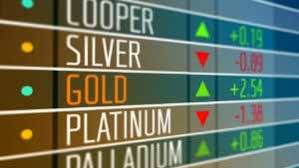Commodities is another category of investments. This is where the investment is made in assets such as oil, gold, silver, platinum, and copper, natural gas or agricultural products (beef, grains, hogs)
There are two major attractions to these investments:
- The prices of commodities tend to rise during periods of price inflation. They consequently offer a ‘hedge’ (this is a means of counter balancing the adverse price movement of an asset or group of assets) against the risk that inflation erodes the real value of your investments.
- Commodity prices also often move in the opposite direction to other asset classes such as shares and property. Indeed, during periods of weakness in equity markets, investors are inclined to move to gold. Investing in commodities can be an effective way to balance the risks on a portfolio also containing assets like shares and property.
As you note commodities like agricultural products are part of our everyday lives and as such they are easily understood as an investment tool. Whether you live in an economy of hyperinflation or not agricultural commodities generally respond to demand and supply because of peak season and off season factors.
Types of Commodities
Commodities that are traded are grouped into four broad categories: metal, energy, livestock and meat, and agricultural.
Metals
Metals commodities include gold, silver, platinum, and copper. During periods of market volatility or bear markets, some investors may decide to invest in precious metals–particularly gold–because of its status as a reliable, dependable metal with real, conveyable value. Investors may also decide to invest in precious metals as a hedge against periods of high inflation or currency devaluation. In many nations gold panning is a common feature but these miners fail to capitalize on the value associated with this metal. They are not using it as an investment.
Energy
Energy commodities include crude oil, heating oil, natural gas, and gasoline (petrol). These commodities have historically proved that they respond to global economic developments (mostly from major economies of the world) Major oil producing nations under the Organization of the Petroleum Exporting Countries OPEC play a major part in influencing the prices of petroleum prices and on the other hand the demand for energy related products gone up. If we look at the demand for petrol and diesel in most African countries it has been driven by the importation of second had vehicles from Japan, Singapore, United Kingdom etc.
As an investor in the energy sector you should be aware of the economic downturns, shifts in production enforced by OPEC, and developments in the third world countries. New technological advances in alternative energy sources (wind power, solar energy, biofuel, etc.) that aim to replace crude oil as a primary source of energy, can all have a huge impact on the market prices for commodities in the energy sector. We have of late seen the growth in the production of electric cars, solar cars, electric buses and this is bound to cause a shift in the demand of oil products.
Livestock and Meat
Livestock and meat commodities include lean hogs, pork bellies, live cattle, and feeder cattle. Meat products are being consumed every day in huge quantities and you can become an investor who trades in these commodities and earn huge returns more than eating them every day.
Agriculture
Agricultural commodities include corn, soybeans, wheat, rice, cocoa, coffee (the world’s second highest traded commodity are petroleum), cotton, and sugar. In the agricultural sector, grains can be very volatile during the summer months or during any period of weather-related transitions. For investors interested in the agricultural sector, population growth–combined with limited agricultural supply–can provide opportunities for profiting from rising agricultural commodity prices. It is interesting to note that traders in agricultural commodities can make more money than the actual farmer the reason being that they buy and hold the commodities and wait to sale when the products are in short supply. In order to preserve the value of your money you can buy any nonperishable agricultural commodity when it’s in season and sell later when it’s in off season.
From the four groups of commodities livestock and agricultural commodities can be traded on a local or small scale in various small markets. There are bigger markets where commodities are traded internationally, these are Chicago Mercantile Exchange (CME), the New York Mercantile Exchange (NYMEX), the Intercontinental Exchange (ICE) in Atlanta, Georgia, and the Kansas City Board of Trade. In Europe, there is the London Metal Exchange (LME).

